Our Approach to Protecting the Environment
We are working to expand our line of environment-friendly SDG-oriented products to develop sustainable businesses that adapt quickly to the changing business environment, one of the basic strategies of Chori Innovation Plan 2025.
ECO BLUE™
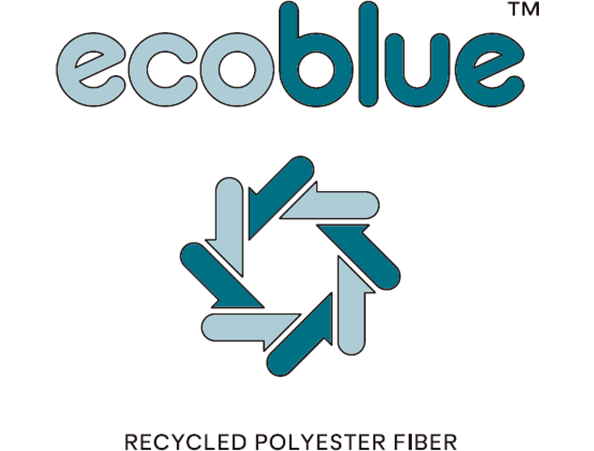
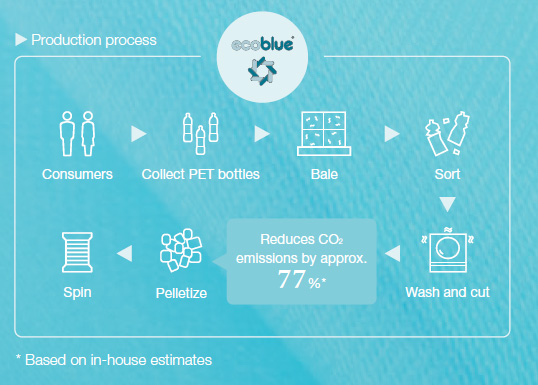
ECO BLUE™ is recycled polyester fiber made from discarded plastic bottles. It was launched in 2007 and has continued to evolve over its 15-year history. The strength of ECO BLUE™ lies in the Company’s ability to handle over 200 types of yarn by leveraging the solid relationships it has built with some of the world’s leading synthetic fiber manufacturers.
WS™
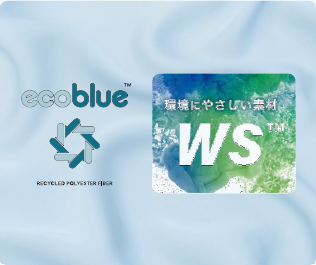
WS™ is a material we developed together with KOMATSU MATERE Co., Ltd. that can be dyed quickly at low temperatures. This quick-dyeing yarn also reduces CO2 emissions from the fabric dyeing process by 31.7%* compared with conventional yarn.
* Based on measurements usingstandard WS™ materials
TEXBRID™
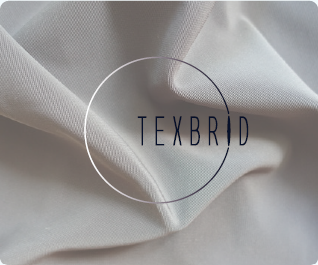
TEXBRID™ is a highly stretchable material that offers excellent elongation recovery capabilities through its spring-like molecular structure, making it especially comfortable to wear. This wrinkle-resistant material caters to a variety of situations, including sports activities and business environments.
SPX™
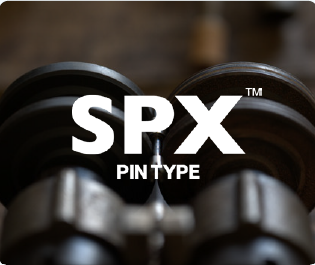
SPX™ is a stretchable, highly crimped polyester yarn made by PIN texturizing, a unique Japanese yarn processing technology that has been used for over 50 years in the Hokuriku region. Due to the unique puffiness and lightness of this yarn, SPX™ is remarkably soft on the skin and comfortable to wear.
BLUENY™
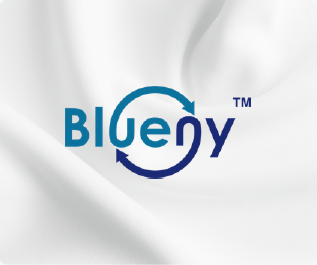
BLUENY™ is a line of three types of nylon: LOOP, a nylon made from recycled fiber waste; OCEAN, a post-consumer nylon derived from used fishing nets; and SAVE, a bio-nylon derived from plants.
B-LOOP™
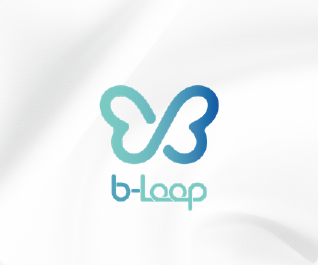
B-LOOP™ is a polyester yarn that is colored by blending pigments into the yarn during the spinning stage. Adding colors at the yarn-making stage uses less water and produces less CO2 emissions than dyeing fabric.
ECOSOL™
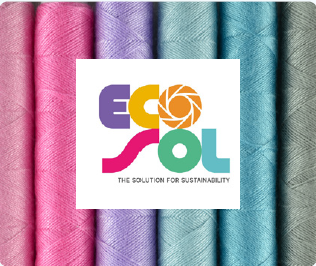
ECOSOL™ is a polyester yarn that is colored by blending pigments into the yarn during the spinning stage. Adding colors at the yarn-making stage uses less water and produces less CO2 emissions than dyeing fabric.
NEXUEDE™
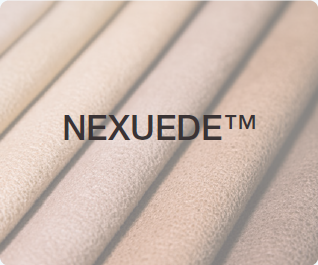
NEXUEDE™ is a high-quality woven microfiber fabric that can be used as an alternative to artificial leather. Due to its suede-like feel, NEXUEDE™ is used on car seats and a number of other products.
Lithium Compound Production Project in Chile
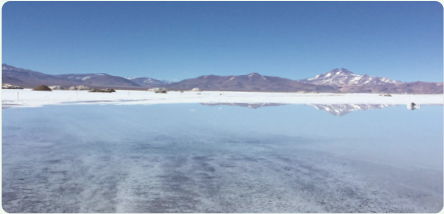
Chori has been involved in a project to extract lithium compounds from brine water without reducing the water volume of salt flats.
Sustainable Sources of Protein

Chori is developing sustainable sources of marine feed by producing novel protein using the latest biotechnology.
Biodegradable Resin
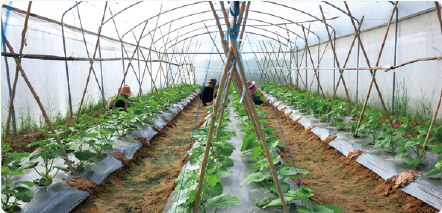
Chori handles the biodegradable resin used in seed sheets, which are eventually decomposed into water and CO2 by microorganisms, and is proposing the use of this naturally derived synthetic resin in garbage bags and other products.
